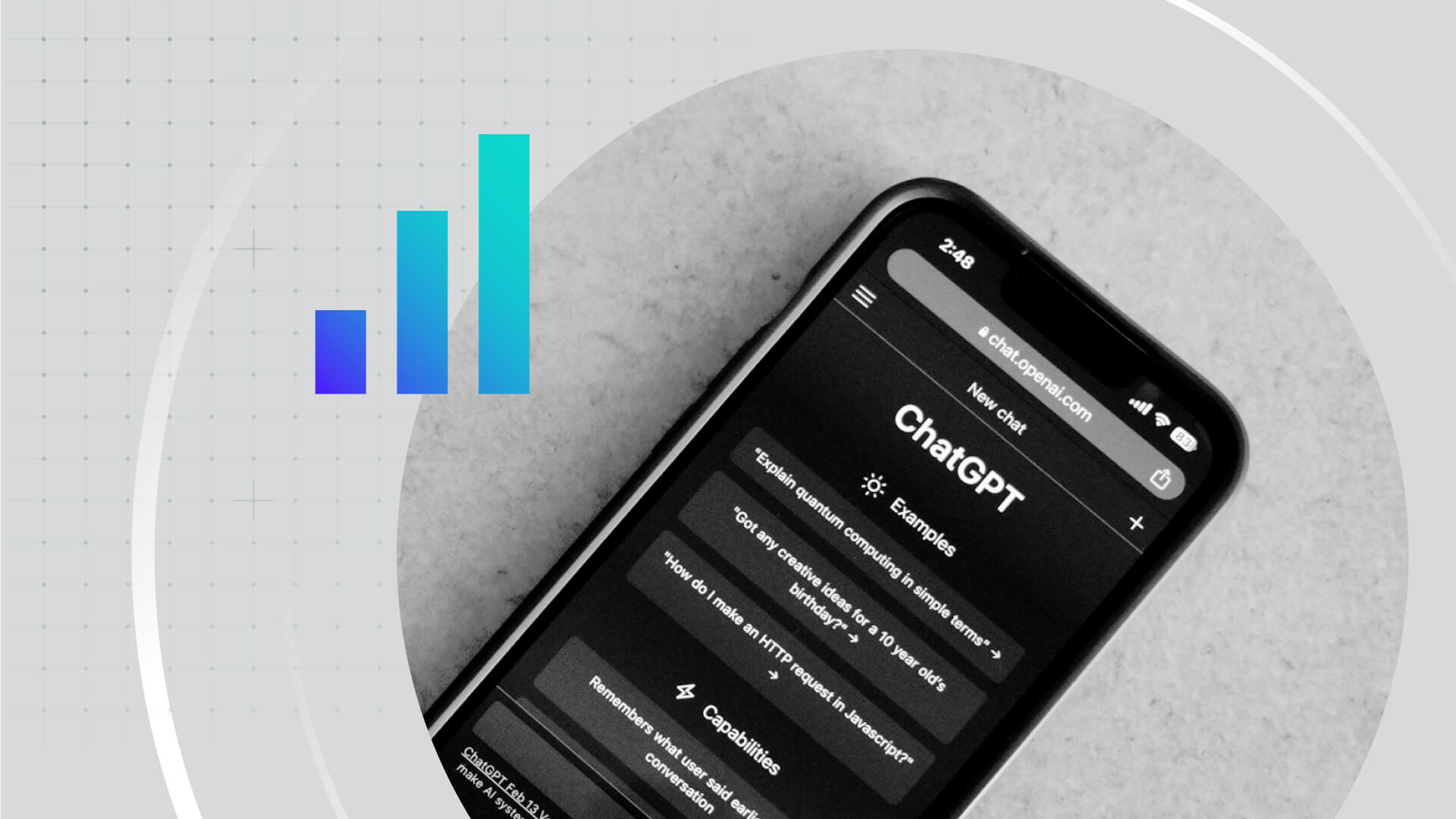Why Generative AI Needs Another Breakthrough Moment

Key Takeaways
As we approach one year since generative AI landed in the hands of the public, the tech needs a breakthrough in the reliability of its output to maintain momentum.
The generative AI applications consumers are most interested in are ones that help people but don’t necessarily replace them, posing a challenge for industries such as customer service and health care.
Gen Z adults and millennials make up most of generative AI’s early user base, but they are interested in different applications.
Sign up to get the latest global tech data and analysis delivered straight to your inbox.
Roughly nine months since OpenAI’s ChatGPT launched to the public, it’s still early days for generative artificial intelligence as developers refine the underlying models and slowly roll out new applications. It’s already clear, however, that this rapidly evolving technology will soon change the way we work, find information and consume content.
A series of Morning Consult surveys indicates that there is substantial consumer interest in generative AI applications, both real (e.g., in online search or for generating text) and hypothetical (such as smart assistant integrations or in roadside assistance). But people also have important concerns, ranging from how their data is handled to the technology’s potential misuse, feeding into a desire for strict regulation of its applications and development.
Specific demographics at scale: Surveying thousands of consumers around the world every day powers our ability to examine and analyze perceptions and habits of more specific demographics at scale, like those featured here.
Why it matters: Leaders need a better understanding of their audiences when making key decisions. Our comprehensive approach to understanding audience profiles complements the “who” of demographics and the “what” of behavioral data with critical insights and analysis on the “why.”
Below are three key takeaways from thousands of survey interviews about the current state of generative AI.
1. Generative AI needs another big breakthrough to reignite consumer excitement
ChatGPT’s public demo launch in November 2022 showed consumers that conversational AI is real and ready to use. As public interest in the technology quickly expanded, ChatGPT became the fastest growing consumer application in history at the start of this year, spurring millions of people to imagine what generative AI could do for them.
Microsoft’s $10 billion investment in OpenAI and its ensuing integration of ChatGPT into its Bing search engine kicked off a digital arms race as other tech titans like Google rushed to roll out their own generative AI tools and venture capital firms shifted their attention to finding the next big thing in the field.
Generative AI in online search has become a kind of test of the technology’s viability and reliability, since that’s where Microsoft and Google are focusing their consumer-facing AI efforts. After all, when users search for something online, their intent is typically to find results that are honest and unbiased. Yet, based on what they’ve seen so far, consumers are not convinced that generative AI has passed this test, and interest in AI in online search has waned since its zenith in March.
Interest in AI-Powered Online Search Has Dipped Since March
In February, when interest in generative AI in search was near its peak, a Morning Consult survey revealed that the application had a trust problem — and it has worsened since. Five months ago, about 2 in 5 U.S. adults (41%) said they “completely” or “mostly” trust generative AI to provide factual results, but that share is down to just about a quarter (26%) now. People’s trust in the tech to avoid gathering content from sites that promote misinformation and to help them accurately do work has followed a similar trend.
Trust in Generative AI to Be Helpful and Accurate Has Decreased
For consumers to get excited again about generative AI in online search, which would also help open the gates to more applications, AI developers need to demonstrate serious progress in the reliability of the tech’s output, such as drawing from reputable sources, providing added transparency to users as to what those sources are and ensuring that the information provided matches those sources. Until then, generative AI will remain a demonstration of what could be instead of a serious tool people use to find information, generate content and work more efficiently.
2. The most interesting AI applications help people, not replace them
Morning Consult’s tracking of interest in more than three dozen real and hypothetical applications of generative AI has shown a consistent theme over the past six months: People are more interested in tools that help them perform tasks more effectively than they are in those that outright replace people. About half of U.S. adults said in August that they are “very” or “somewhat” concerned about generative AI leading to job losses in their industry, and given the uncanny valley the tech introduces by emulating people, this is not too surprising.
U.S. Adults Are Least Interested in Generative AI Applications That Replace People
Brands looking to integrate generative AI into their own products and services should recognize, though, that helping consumers may inevitably mean replacing workers.
In addition to online search, another likely candidate for AI integration is customer service. Some studies suggest that integrating generative AI into customer service will help companies save tens of billions of dollars over the next few years, but consumer discomfort with the tech could be an obstacle if it’s not properly implemented.
Beyond customer service, AI in health care raises as many potential benefits as it does concerns about people’s data, health and safety. A recent Morning Consult analysis found that 70% of U.S. adults are concerned about the presence of AI in health care. That being said, when it comes to specific applications, comfort levels vary. People are more comfortable than not with the idea of AI analyzing medical data and history or documenting appointments, but the majority are uncomfortable with it when applied to diagnosing issues or helping perform surgery.
In these examples, and for other applications, reliability of generative AI is vital — and being transparent about its use is another expectation among consumers.
Most Consumers Say AI Usage Should Be Labeled
About 2 in 3 adults (67%) agreed that AI output should be labeled as such, including around 3 in 5 tech-savvy Gen Zers and millennials. AI output labeling is part of a series of guidelines announced by the White House that major AI development companies voluntarily agreed to — a requirement that has bipartisan support, per a recent Morning Consult study. But until such a requirement is written into law, companies that are experimenting with customer-facing generative AI applications would benefit from being clear on when and how these are being employed.
3. Gen Zers and millennials show interest in different generative AI applications
In February, when generative AI technologies and chatbots were dominating headlines, Morning Consult conducted an analysis to identify the early fans of generative AI based on their interest in the technology and found that much of this “base” group was composed of millennials. Six months later, our high-frequency tracking of the major brands in this space shows that users of ChatGPT and Bard have a similar demographic profile.
ChatGPT and Bard Users Are Likely to Be Men and Millennials
What we do that’s different: Brand data used in this analysis is available exclusively in Morning Consult Intelligence, an exclusive online platform tracking consumer attitudes daily on key indicators for nearly 4,000 brands in 40+ markets.
What Morning Consult Intelligence tracks: Globally, we ask consumers daily about awareness, trust, purchasing behaviors, favorability, net promoter score and buzz. This depth and frequency offers an exclusive, real-time pulse identifying changes in consumer opinion.
More than 2 in 5 users of ChatGPT and Bard are millennials, and the vast majority of these users are men. Not surprisingly, the majority of users also identify as early tech adopters (58% and 60%, respectively) according to Morning Consult Audience data.
Also notable is the high proportion of Gen Z users of these services relative to the broader U.S. population. Going a bit deeper, how Gen Zers and millennials are interested in using generative AI varies, which is largely based on the different experiences each generation has had with technology.
Gen Z Adults Show More Interest in Certain Generative AI Applications Than Millennials
On average, Gen Z adults’ interest level is not notably higher than millennials’ across dozens of different generative AI use cases. However, they do show more interest in specific applications that others are less comfortable with — namely, those that replace people, such as virtual friends, romantic partners, actors and spokespeople. As a generation that grew up fluent in social media, these TikTok, Snapchat and Instagram power users are all too familiar with AI-enhanced filters that already blur the lines between what’s real and what isn’t. These experiences have likely helped prime Gen Zers to be more comfortable with virtual avatars of themselves.
Generative AI’s user base reflects a population more open to using new technologies, but how they intend to use these tools is not monolithic, and is instead rooted in specific needs and experiences. The success of generative AI applications will largely depend on the experiences these early fans and users have. For companies developing and refining AI models, it will be critical to know who is using these services and for what. In the case of Gen Z, the cohort’s experience with AI technologies already makes them more predisposed to future generative AI applications that older generations are less comfortable with, and may indicate how the applications will evolve in the next five to 10 years.
Jordan Marlatt previously worked at Morning Consult as a lead tech analyst.


